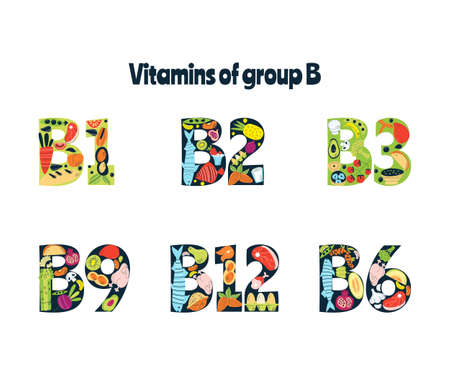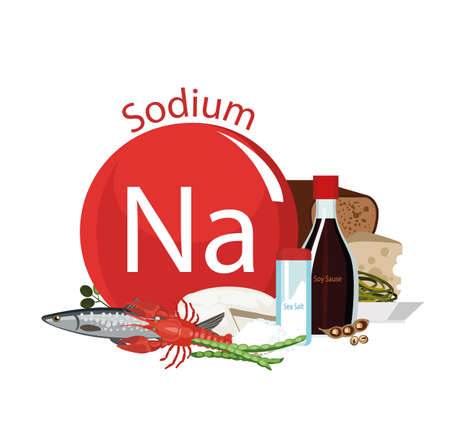Why Go Natural? The Benefits of DIY Cleaning Products
In recent years, more UK households are turning to homemade natural cleaning products—and for good reason. Making your own cleaners isn’t just a passing trend; it’s an intentional shift towards healthier living, greater environmental responsibility, and savvy budgeting. Let’s take a closer look at why going natural with your cleaning routine makes sense, especially here in the UK.
Better for Your Health
Many commercial cleaning products contain harsh chemicals that can irritate skin, eyes, and lungs. By making your own with simple ingredients like bicarbonate of soda, white vinegar, and essential oils, you reduce exposure to potentially harmful substances. This is especially valuable in British homes where ventilation can be limited during colder months.
Eco-Friendly Choices for the UK
Homemade cleaners help cut down on plastic waste—a significant concern in the UK where single-use plastics remain a hot topic. By reusing spray bottles and storage jars, you’ll send less rubbish to landfill and lessen your overall environmental footprint. Moreover, many DIY recipes use ingredients available from local shops or zero-waste stores, further supporting the British push for sustainability.
Cost-Effective and Accessible
The cost of branded cleaning products can add up quickly. In contrast, staples like lemon juice, vinegar, and baking soda are budget-friendly and often already lurking in your cupboards. With a few simple swaps, you can keep your home sparkling clean without breaking the bank—leaving you more money for life’s little pleasures (like a proper cuppa!).
Supporting Local Communities
Choosing locally sourced ingredients not only reduces transport emissions but also backs small businesses and independent retailers throughout the UK. Whether you’re picking up Castile soap at your neighbourhood health shop or buying refills from a local market stall, every purchase helps strengthen community ties and promotes a more sustainable way of living.
A Win-Win for Everyday Life
By embracing DIY natural cleaning products, you’re investing in your wellbeing, protecting the environment, saving money, and supporting local economies—all while keeping your living space fresh and inviting. It’s a mindful approach that fits beautifully into the rhythm of modern British life.
Essential Ingredients for British Homes
When embarking on the journey of making your own natural cleaning products in the UK, it’s important to know which ingredients are both effective and easy to source locally. Fortunately, most British supermarkets, health food shops, and even corner stores stock a variety of affordable staples perfect for DIY recipes. Below is a guide to some of the most popular and budget-friendly ingredients you’ll find across the UK, along with their typical uses in home cleaning.
Common DIY Cleaning Ingredients in the UK
| Ingredient | Where to Find | Main Uses |
|---|---|---|
| Bicarbonate of Soda | Supermarkets (baking aisle), chemists | Deodorising, scrubbing surfaces, laundry booster |
| White Vinegar | Supermarkets (cleaning or condiments section) | Limescale removal, glass cleaner, fabric softener |
| Castile Soap | Health food shops, online retailers | General cleaning spray, hand wash, dish soap |
| Essential Oils (e.g., tea tree, lavender, lemon) | Health shops, pharmacies, some supermarkets | Add fragrance, natural antibacterial properties |
| Lemon Juice (fresh or bottled) | Supermarkets (produce or condiments) | Degreasing, natural bleach alternative, odour neutraliser |
Local Alternatives and Tips
If you’re looking for a truly local touch or want to support small businesses, consider sourcing ingredients from British brands or zero-waste refill shops that have become increasingly popular in many towns and cities. For example:
- Seek out locally produced vinegar at farmers’ markets.
- Choose UK-made essential oils where possible – Scottish lavender and English peppermint are excellent choices.
- Many refill stores offer bulk buying options for bicarbonate of soda and Castile soap, helping reduce packaging waste.
Budget-Friendly Shopping Advice
If you’re on a tight budget, supermarket own-brand white vinegar and bicarbonate of soda are just as effective as branded versions. Buying larger quantities can also save money in the long run. Don’t forget to check high street discount shops for deals on basic ingredients – they often carry larger packs at lower prices than mainstream supermarkets.

3. Simple DIY Recipes for Everyday Cleaning
Transform your home cleaning routine with these fuss-free, natural recipes that are perfectly suited for British households. Whether you’re tackling limescale from hard water or muddy footprints after a rainy walk on the moors, these DIY solutions use ingredients readily available in UK supermarkets and shops. Here’s how to create effective cleaners for kitchens, bathrooms, and general surfaces, step by step.
Multi-Purpose Surface Cleaner
Ingredients:
- 500ml distilled white vinegar
- 500ml cooled boiled water
- 10 drops lavender essential oil (or tea tree oil for extra antibacterial power)
Method:
- Pour the vinegar and water into a clean spray bottle.
- Add the essential oil of your choice.
- Shake well before each use.
How to Use:
Spray on worktops, tiles, and most sealed surfaces. Wipe away with a damp microfibre cloth. This solution works wonders on typical British kitchen grease and everyday spills.
Natural Bathroom Cleaner
Ingredients:
- 200g bicarbonate of soda (baking soda)
- 100ml distilled white vinegar
- Zest of one unwaxed lemon
Method:
- Sprinkle bicarbonate of soda onto sinks, baths, or taps.
- Squeeze over some vinegar – it will fizz!
- Add a little lemon zest for freshness and mild bleaching action.
- Scrub gently with a sponge or brush.
How to Use:
This recipe targets hard water stains and soap scum so common in UK bathrooms. Rinse thoroughly after scrubbing for sparkling results.
Kettle & Limescale Remover
Ingredients:
- The juice of 1 lemon
- 250ml distilled white vinegar
Method:
- Add the lemon juice and vinegar to your empty kettle.
- Fill to halfway with water, boil once, then leave to sit for 30 minutes.
How to Use:
This method safely dissolves limescale—a common issue due to the UK’s hard water. Rinse thoroughly before using the kettle again.
Tough Stain Paste for Floors & Muddy Boots
Ingredients:
- Bicarbonate of soda
- A splash of water
Method:
- Mix enough water into bicarbonate of soda to form a thick paste.
How to Use:
Dab onto stubborn marks on floors or boots left by British weather. Leave for 10 minutes before wiping off with a damp cloth. This is especially handy during autumn and winter months!
With these easy-to-follow methods and local ingredients, you can keep your home naturally fresh while embracing eco-friendly practices tailored specifically to life in the UK.
Eco-Friendly Packaging and Storage Tips
When it comes to creating DIY natural cleaning products, how you package and store them is just as important as the ingredients themselves. Sustainable packaging not only reduces waste but also helps maintain the freshness and efficacy of your homemade cleaners. Here in the UK, there are plenty of eco-conscious options for sourcing and reusing containers that fit right into our daily routines.
Sourcing and Reusing Containers Locally
Reusing containers is a quintessentially British way to reduce environmental impact, save money, and support a circular lifestyle. Everyday items like glass jars from jams or pickles, old spray bottles, and even ceramic pots can be repurposed for your DIY cleaning arsenal. Here are some popular sources:
| Container Type | Where to Source | Tips for Preparation |
|---|---|---|
| Glass Jars | Local supermarkets (reused food jars), charity shops, zero-waste stores | Wash thoroughly; sterilise with boiling water before use |
| Spray Bottles | Reuse from finished commercial cleaners or buy refillable ones at hardware shops (e.g., B&Q, Wilko) | Rinse well; label clearly to avoid confusion |
| Ceramic or Metal Tins | Biscuit tins, tea caddies, car boot sales, family hand-me-downs | Ensure they have tight-fitting lids to keep products fresh |
Storage Advice for Freshness and Minimal Waste
The UK’s variable climate means careful storage is key to keeping your natural cleaning concoctions fresh and effective. Follow these tips for optimal results:
- Avoid Direct Sunlight: Store your products in cool, dark cupboards to prevent degradation of essential oils and other sensitive ingredients.
- Airtight Lids: Always use airtight lids—especially with powders or solutions containing vinegar—to preserve potency and avoid evaporation.
- Label Clearly: Mark each container with the product name and date made. This helps you track freshness and reduces the risk of accidental misuse.
- Batch Size: Make small batches that suit your household needs—this prevents wastage if a product loses effectiveness over time.
- Compostable Options: If a cleaner goes off or is past its best, compost biodegradable contents (like citrus peels) where possible rather than sending them to landfill.
Local Resources for Sustainable Supplies
If you need new containers, look out for UK-based zero-waste shops or online retailers such as "Anything But Plastic", "Peace With The Wild", or local refill stations in your area. These offer glass bottles, jars, and other reusable packaging perfect for home cleaning solutions.
A Final Word on Mindful Storage
Sustainable living is all about making thoughtful choices in every step of your routine. By reusing containers already available in your home or community—and storing your DIY cleaning products mindfully—you’ll cut down on waste and ensure your eco-friendly cleaners stay effective. It’s one more way to bring balance to both your household and the environment.
5. Sourcing British Ingredients and Supplies
When it comes to crafting your own natural cleaning products, sourcing quality ingredients and reliable supplies is essential. Luckily, the UK offers a wealth of options for those who want to shop sustainably and support local businesses. Whether you prefer browsing traditional high street shops or shopping online from the comfort of home, here’s how you can find what you need to get started.
Local Markets and Independent Shops
Visiting your local farmer’s market or zero-waste shop is one of the best ways to source fresh, British-grown ingredients such as lemons, white vinegar, and baking soda. Many independent greengrocers, refill stores, and co-operatives across the UK now offer eco-friendly household essentials in bulk, letting you reduce packaging waste while picking up top-quality supplies. Don’t forget to bring your own containers and bags!
High Street Favourites
If you’re after items like pure soap flakes, bicarbonate of soda, or essential oils, chemists such as Boots or Holland & Barrett are widely available throughout the UK. These shops often carry both branded and own-label versions of many DIY cleaning staples at affordable prices. For reusable cleaning tools like bamboo brushes or microfibre cloths, check out John Lewis or Lakeland for durable British-made options.
Online Eco-Friendly Suppliers
For those who prefer online shopping or need specialist items not found locally, several UK-based eco-focused suppliers make it easy to order everything you need. Stores like The Plastic Free Shop, Bower Collective, and Ethical Superstore stock a wide range of sustainable cleaning ingredients and tools—from British beeswax wraps to compostable sponges and glass spray bottles. Many of these retailers also offer subscription services for regular refills delivered straight to your door.
Supporting Local Producers
When possible, look out for British brands that champion environmental responsibility. By choosing locally sourced white vinegar from companies such as Aspall or Wilko’s own-label bicarb, you’re supporting local jobs while reducing carbon miles associated with imported goods. Farmers’ markets are excellent places to discover small-scale producers offering natural soaps and essential oils made right here in the UK.
Top Tips for Sustainable Shopping
– Always check labels for country of origin
– Bring your own containers for refills
– Choose concentrated products to cut down on packaging
– Support local businesses wherever possible
– Look for British Soil Association or EcoCert certified goods for extra peace of mind
By sourcing your natural cleaning ingredients and reusable tools from trusted UK-based outlets, you’ll enjoy peace of mind knowing exactly where your products come from—and help foster a more sustainable future for all.
6. Safety, Effectiveness, and the British Climate
Storing Your DIY Cleaners Safely in the UK
When it comes to storing homemade cleaning products, the British climate—with its notorious dampness and temperature fluctuations—poses unique challenges. Always use airtight containers made from glass or BPA-free plastic to prevent moisture ingress, which can compromise your blends. Store your bottles in a cool, dark cupboard away from children and pets, as many essential oils and natural ingredients can be harmful if ingested or spilled. If you live in a particularly humid region, consider using silica gel packets to reduce moisture inside storage areas.
Effective Cleaning Across Varied Climates
The UKs weather can swing from chilly Scottish winters to muggy southern summers. Natural cleaners often rely on ingredients like vinegar, bicarbonate of soda, and essential oils; their effectiveness can be influenced by local climate. In colder environments, solutions with coconut oil may solidify, so opt for alternatives like olive oil when necessary. During damp spells, mould and mildew become stubborn foes—tea tree oil or white vinegar offer reliable results here. For limescale-prone areas (think hard water regions), citric acid is especially handy for tackling deposits on taps and kettles.
Labelling: A Must for Every British Home
Proper labelling is vital—not only for safety but also for organisation in busy households. Use waterproof labels and include clear information: product name, date mixed, key ingredients, and usage instructions. This ensures everyone at home knows what’s inside each bottle and prevents accidental misuse, especially important if you have children or flatmates who might not be familiar with your homemade concoctions.
Allergy Awareness and Patch Testing
Naturally derived doesn’t always mean allergy-free! Before using any new recipe throughout your home, conduct a patch test on a small area or surface. Essential oils like lavender or eucalyptus are popular but can still trigger sensitivities in some people. If you know family members or guests have allergies or asthma, avoid highly fragrant blends or those containing known irritants such as citrus oils.
By tailoring your DIY cleaning methods to Britain’s climate and household needs—and by storing and labelling your products carefully—you’ll enjoy both the peace of mind and sparkling results that come with natural cleaning.
7. Community, Swaps, and Further Reading in the UK
Embracing DIY natural cleaning in the UK isn’t just about transforming your home—it’s about joining a growing movement. Finding support and inspiration is easier than ever with vibrant local communities and resources dedicated to sustainable living.
Local Environmental Groups
Across Britain, environmental groups like Friends of the Earth and The Wildlife Trusts offer workshops, talks, and meet-ups focused on eco-friendly habits—including natural cleaning. Connecting with these groups can introduce you to like-minded individuals, share practical tips, and keep you motivated on your low-tox journey.
Community Refill Schemes
Many towns now have refill stations at zero-waste shops or market stalls where you can top up on ingredients like white vinegar, bicarbonate of soda, and essential oils. These schemes not only reduce single-use plastics but also foster a sense of community as you swap recipes and ideas while shopping locally.
Online Resources for Brits
The UK is home to a wealth of blogs, Facebook groups (such as “Zero Waste UK” or “Eco-Friendly Cleaning UK”), and websites brimming with reliable recipes and advice tailored for British homes. Platforms like Mumsnet often feature active threads discussing everything from stubborn limescale to homemade laundry powder—ensuring you never run out of creative solutions.
Recipe Swaps and Ongoing Learning
If you’re keen to keep evolving your green cleaning routine, look for local swap events or online challenges where people exchange their favourite blends and hacks. Libraries frequently stock books on natural living by British authors, while organisations like The Soil Association provide trusted guides for deeper reading.
Involving yourself in these circles not only enhances your knowledge but also adds a sense of community spirit—a key ingredient for lasting lifestyle changes. So whether you’re refilling jars at your local market or sharing tips in a neighbourhood group chat, remember: the journey towards a cleaner home and planet is all about supporting each other along the way.


